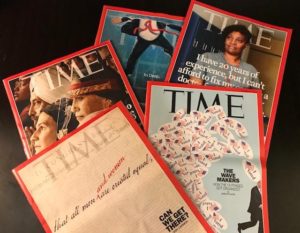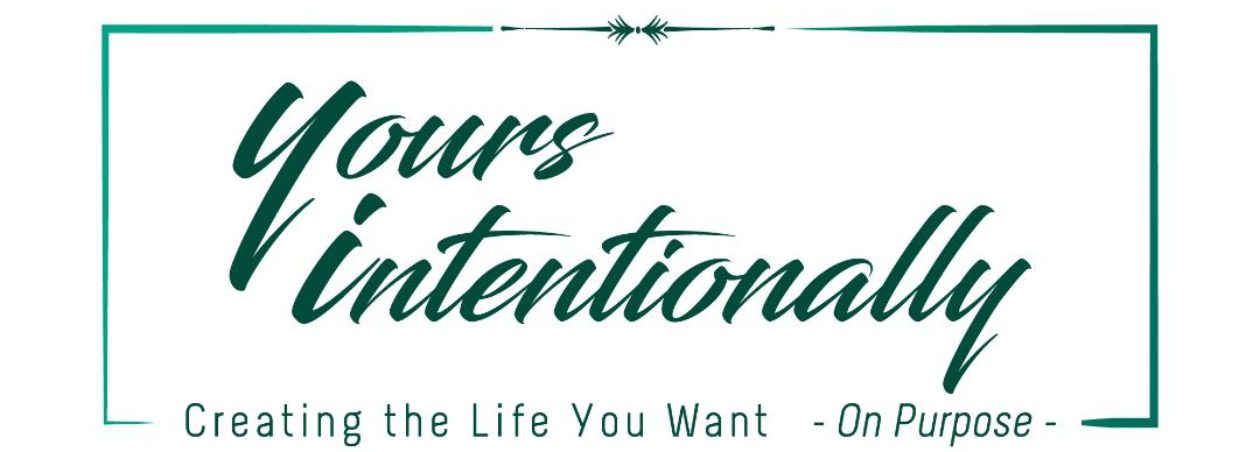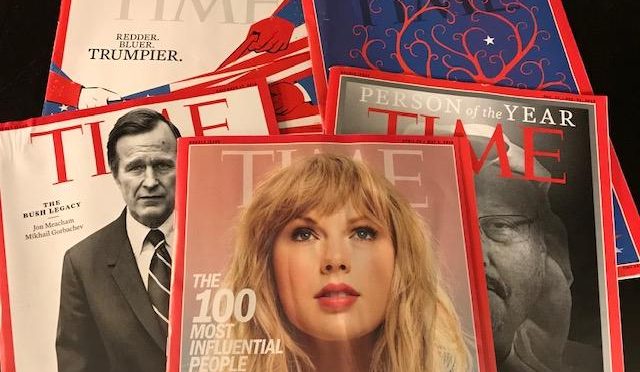The Future Requires It
Do you think your 4-year degree was enough education? Do you think having a Masters or Doctorate under your belt means your education is complete? Think again! Heather McGowan and other forward thinkers are telling us differently. In addition, there are macro trends making it absolutely imperative that we expand our horizons to continue learning and become innovative.
Let me back up and explain
Have you noticed how Artificial Intelligence (AI) and machine learning is already impacting your life? Both are hot topics in the organization where I work (and likely yours, too) as leaders try to determine how AI and machine learning will transform the workplace and the workforce. But it’s not just something that’s coming; some aspects of AI and machine learning are already here and impacting our world more than we may realize.
For example, you’re probably familiar with the fact that Facebook, Instagram and other social media/online platforms gather data about you and your interests — basically learning you — based upon what you click. Then through complex algorithms, they show you more of what you seem to like and want.

How great is that personalization? We love it, right? In fact, that’s probably why we’re so addicted to our phones. Not only can we find just about anything we want, but we hardly have to work for it. Searches aren’t even really necessary because once you’ve clicked on something, more, similar content will be pushed right to you.
Want an example?
When I was interested in starting a blog, I saw one ad in my Facebook feed for an online blogging course. I clicked to read more about it, and the next few days my newsfeed was inundated with entrepreneurs who had hit it big through blogging, or writing, who now wanted to offer me their online courses as well. It was practically unavoidable!
The more links I clicked, the more content was tailored and pushed right to me. Pretty soon, I found other people, like me, who were in the process of starting a blog or who had gone before and now had lessons learned they were willing to share with newbies.
This is nice, right? I had all the info I could ever want about starting a blog right at my fingertips, and I had like-minded people with similar goals to guide me along the way. It was super helpful, and it took some of the leg work and guess work out of the equation. Who would complain about that?
I’m not complaining per se, but I do want to draw attention to one potential problem: As I became more micro-focused on only the things that interested me, I was losing sight of the macro world around me.
I do want to draw attention to one potential problem: As I became more micro-focused on only the things that interested me, I was losing sight of the macro world around me.
How the world is changing
When radio and television first hit the scene, people had access to only a few stations or channels, and the content provided ensured they had awareness of what was happening in the world and in their localities. It broadened the world for those who hadn’t had those technologies previously, and it gave everyone something in common to talk about.
Now, our choices of media are endless and the amount of information available to us has grown exponentially. We can choose to subscribe, follow, or like what interests us. Then more info is pushed to us based on a user profile that’s been developed using our data and tracking our habits.
This means some people can literally go through life never hearing about the global, national, or local news. Or worse yet, not having common awareness of happenings and events their neighbors, friends and co-workers are aware of.
Just think Netflix, Hulu, XM radio, Pandora, etc., where what you want is provided 24/7; oftentimes, without commercials or interruptions of any kind. As a result, we’re not getting the broad information we once did. Instead, filters are used to provide very catered information.
The Future of Work and Tribes
There’s a researcher named Heather McGowan who believes “the future of work is learning.” In her presentation for the World Bank titled The Future of Work (which I highly recommend watching on YouTube), she reviews principles of her thesis and touches on macro trends occurring in the world today.
One of those macro trends she discusses is based upon Anne-Marie Slaughter’s book: Tribes. According to Slaughter, we’re essentially creating groups of like-minded individuals with similar beliefs, experiences, and goals. This is limiting our view of the world and our exposure to different ideas, perspectives and people.
It’s also causing society to be incohesive and disconnected. McGowan says it’s a phenomenon that’s keeping us from growing and learning. She goes on to say, it’s one of the major reasons for the political divide occurring today in the U.S. between red states and blue states, and it’s causing many other polarizations around the world.
So, what are we to do? McGowan suggests creating conscious-bridging networks with people who are different from us within our networks. We then should intentionally learn about, and from, them, while also helping them to understand us. This can help bridge our knowledge gaps and expand our horizons.
The Power of Wonder
McGowan goes on to discuss Info-Sponging, which was an idea coined by Jeff Hoffman. Hoffman is the co-founder of Priceline.com who observed what the world’s most innovative people did. He decided to do the same, and it ultimately led to the creation of his company.
In his TedxWallStreet presentation titled The Power of Wonder, he describes Info-Sponging as taking 20 minutes per day to learn something about a topic of which you know nothing. He turns off all distractions and looks outside his industry or field to learn what people in other industries or fields are doing. He looks at trends, data, and global events, and he writes items of interest on sticky notes. Then, without fail, a picture emerges from all the pieces of data gathered outside his world to reveal something new and different – or innovative – that can apply to his work.
Hoffman believes companies like Borders, Hollywood Video, and Hostess no longer exist because those companies’ leaders failed to continue to wonder. They needed to question how things could be better or different, like a child who wonders “Why do we have X? What’s the purpose of Y?” If they would have looked outside their industries at how the world was changing, they likely could have stayed in business.
McGowan shared a great example of “wondering.” She shared that Steve Jobs studied Calligraphy, which then led to the creation of fonts within a Mac. Awesome!
What do McGowan, Slaughter and Hoffman have in common?
They all believe learning, removing filters, and expanding our horizons and networks is critical.
McGowan showed a graphic about the various zones we often operate within. We all know about (and like) our Comfort Zones — where all is going smoothly and is relatively easy. We also know about (and try to avoid) our Panic Zones — where things are outside of our control, uncertain or scary.
But McGowan believes we should spend more time in an additional zone — the Learning Zone. It used to be you went to high school, then college, got your education and went to work. But no longer. McGowan predicts everyone will need to become continuous learners engaging in work and learning seamlessly — and on an ongoing basis.
Similarly, Hoffman discusses bringing back child-like wonder in which everything we do is wondered about and questioned. That’s how we avoid becoming extinct with the status quo and can learn to continuously innovate. In his Tedx, he said this: “The world’s most innovative people remove all their filters and open their minds.”
“The world’s most innovative people remove all their filters and open their minds.” — Jeff Hoffman, co-founder of Priceline.com
I love it!
This is all thrilling to me. I consider myself a life-long learner who loves to read and expand my mind. In fact, according to the book StrengthsFinder, and its accompanying assessment, Learner is one of my top 5 strengths. I recognize some don’t share this same passion. But for those who do, what an exciting idea to expand our horizons by learning something new, outside of our fields of interest. (And for those who don’t, I’m sorry to say, but you may have to embrace learning just to keep up.)
Upon hearing about 20-minutes per day of Info-Sponging, I decided to try it. Where did I start? With TIME Magazine. We’ve had a subscription for several years now, primarily for my husband. I never paid much attention when the magazines arrived in the mail, other than glimpsing at the cover before tossing into a pile. But after hearing Hoffman’s idea, I decided to begin reading those TIME magazines.
And guess what? It definitely has broadened my horizons. The topics they write about – global and national issues and people – were not showing up in my social media newsfeeds. Which meant those topics had pretty much been off my radar for some time.
Whether or not I end up with a truly innovative idea, reading TIME is helping. It’s making me more well-rounded and helping me become more conversational with those interested in the topics. 
If the future of work is learning, as McGowan indicates, I’m all about that!
If AI and machine learning continue to filter information to cater to us, we’ll simply have to work harder to seek out different content, perspectives, ideas and people.
My point isn’t that we all need to read TIME (soon I’ll likely incorporate other sources). Rather, my point is that we must seek out new and different information — whatever, wherever — to broaden our horizons. Those who are intentional about it, will be fine.
What do you think?
Do you love to learn and want to try Info-Sponging for yourself? Does the idea of tribes concern you? Does the thought of the future of work, AI or machine learning intimidate you or excite you? I always love to hear your thoughts.
Yours intentionally, Amanda


With so much information at our fingertips, it is easy to get overwhelmed. I finally had to stop looking at beginner blogging info because it became so conflicting. I make an effort to read every day to at least keep a pulse on the world at large. Constant learning keeps the mind sharp and the ability to make informed decisions. I enjoyed this article.
Thank you, Shar! I appreciate you reading it! I agree with you, it absolutely can feel overwhelming at times. But I love hearing that you make the effort to read a little bit every day to stay sharp and on top of what’s happening in the world around you. I believe it’s important that we all do that!